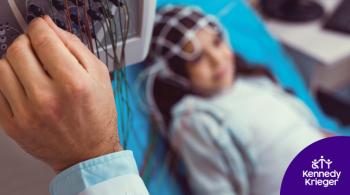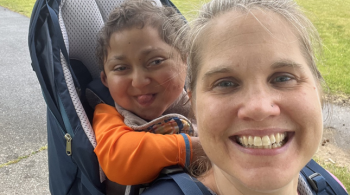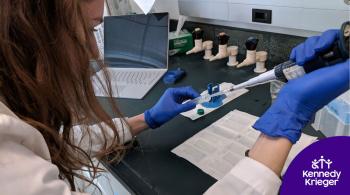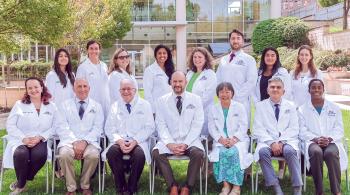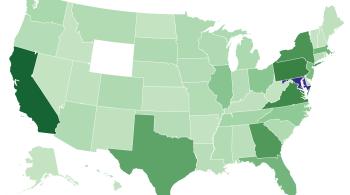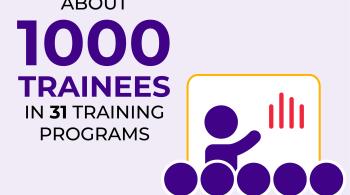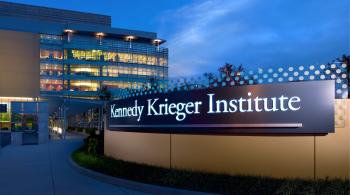بالتيمور، 18 نوفمبر 2025 -حصل معهد Kennedy Krieger على منحة بقيمة 8.17 مليون دولار من المعاهد الوطنية للصحة لإنشاء وقيادة شبكة هي الأولى من نوعها في الولايات المتحدة، مكرسة لتطوير علاجات لأمراض باتن، وهي مجموعة من الاضطرابات العصبية التنكسية النادرة لدى الأطفال.
تضع هذه المنحة معهد Kennedy Krieger في موقع المركز التنسيقي لاتحاد الأبحاث السريرية لمرض باتن (BDCRC) الذي يضم 14 موقعًا. وتحت إشراف د/ إيريكا أوغستين، مديرة مركز التميز في علاج مرض باتن التابع لمعهد Kennedy Krieger، سيكون مقر المركز التنسيقي لاتحاد الأبحاث السريرية لمرض باتن في معهد Kennedy Krieger، والذي سيكون بمثابة المركز العلمي والإداري للشبكة.
وقالت د/ أوغستين: "يمثل المركز التنسيقي لاتحاد الأبحاث السريرية لمرض باتن فرصة كبيرة لسد الثغرات الحرجة في المعرفة حول أمراض باتن والاستعداد لتصميم التجارب السريرية وإطلاقها. ومن خلال توحيد المراكز الأكاديمية الرائدة وشركاء المناصرة، فإننا نرسي الأساس لتحقيق تقدم ملموس".
أمراض باتن -التي تُعرف أيضًا باسم الداء الليبوفوسيني السيرويدي العصبي - هي اضطرابات وراثية عصبية غالبًا ما تسبب فقدان البصر، وتدهور المهارات الحركية والقدرات الإدراكية، ونوبات صرع، وحتى الوفاة المبكرة. ويوجد أكثر من اثني عشر نوعًا فرعيًا من مرض باتن، ومعظمها لا تتوفر له علاجات فعّالة.
سيصبح معهد Kennedy Krieger جزءًا من شبكة الأبحاث السريرية للأمراض النادرة (RDCRN)، وسيعمل عن كثب مع مؤسسة Our Promise to Nicholas Foundation و مؤسسة دعم مرض باتن والبحوث والمناصرة (BDSRA)، لضمان التركيز على وجهات نظر المرضى. وتقول آمي فينتون باركر، الرئيسة والمديرة التنفيذية لمؤسسة BDSRA، إن هذا سيساعد في توجيه أولويات البحث.
قالت باركر: "هذه المنحة خبر استثنائي لمجتمع باتن. وتسعد مؤسسة دعم مرض باتن والبحوث والمناصرة (BDSRA) بالتعاون مع معهد Kennedy Krieger والمركز التنسيقي لاتحاد الأبحاث السريرية لمرض باتن (BDCRC) للمساعدة في الحفاظ على أولويات أبحاث مجتمع باتن في الصدارة، مع السعي وراء أفكار جديدة لتلبية الاحتياجات غير الملباة لعلاجات فعالة وملائمة سريريًا."
يموَّل المشروع من قبل معهد يونيس كينيدي شرايفر الوطني لصحة الطفل والتنمية البشرية (NICHD) والمعهد الوطني للاضطرابات العصبية والسكتة الدماغية (NINDS) والمركز الوطني لتطوير العلوم التحويلية (NCATS).
تشمل مواقع المركز التنسيقي لاتحاد الأبحاث السريرية لمرض باتن (BDCRC) مستشفى بوسطن للأطفال، ومستشفى كولورادو للأطفال، ومستشفى أورانج كاونتي للأطفال، ومعهد يونيس كينيدي شرايفر الوطني لصحة الطفل والتنمية البشرية، ومستشفى نيشنوايد للأطفال، ونيويورك يونيفرسيتي لانغون هيلث، وجامعة راش، وسانفورد ريسيرتش، وجامعة ميشيغان، وجامعة نورث كارولينا في تشابل هيل، وجامعة روتشستر، وجامعة واشنطن في سانت لويس. كما سيتم إطلاق مستودع وطني للعينات البيولوجية المتعلقة بمرض باتن لتوفير أساس للاكتشافات المستقبلية.
ستنشر شبكة الأبحاث السريرية للأمراض النادرةRCDRN تحديثات حول المشروع مع بدء العمل قريبًا. تفضل بزيارة موقعنا الإلكتروني لمعرفة المزيد عن الأبحاث الإضافية الجارية حول مرض باتن في معهد Kennedy Krieger.
###
نبذة عن معهد Kennedy Krieger
يُعد معهد Kennedy Krieger منظمة غير ربحية معروفة عالميًا، يقع في منطقة بالتيمور/واشنطن العاصمة الكبرى، ويُحدث تأثيرًا في حياة ما يقرب من 30,000 فرد سنويًا من خلال تقديم مجموعة واسعة من الخدمات، تشمل: العلاج الطبي الداخلي والخارجي، وعلاجات الصحة السلوكية والعافية، وخدمات الرعاية المنزلية والمجتمعية، والبرامج المدرسية، إلى جانب التدريب والتثقيف المهني والدفاع عن القضايا المتعلقة بالصحة العصبية. ويقدم معهد Kennedy Krieger مجموعة واسعة من الخدمات للأطفال والمراهقين والبالغين الذين يعانون من أمراض أو اضطرابات أو إصابات تؤثر على النظام العصبي وتتنوع شدتها من المتوسط إلى الحاد. ويترأس المعهد فريقًا من الباحثين الذين يساهمون في فهم نشوء الاضطرابات مع استحداث أساليب تدخل جديدة وطرق تشخيص ووقاية وعلاج مبكرة. يرجى زيارة www.KennedyKrieger.org/ لمزيد من المعلومات حول معهد Kennedy Krieger.

